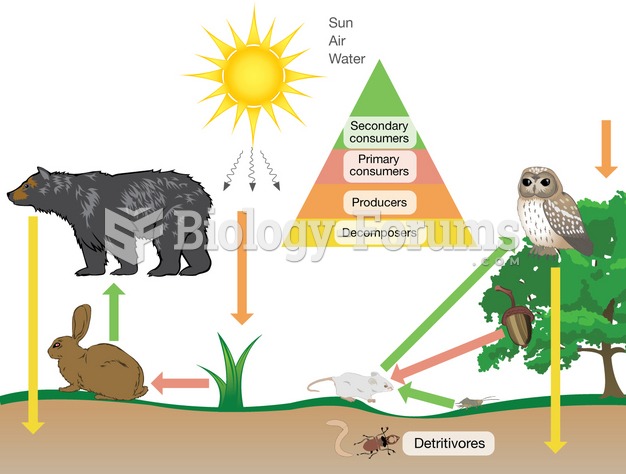Answer to Question 1
The FSMA gives the FDA a mandate to prevent food-borne illness by using science and addressing farm-to-table hazards. With improvements in how foods are produced, handled, processed, transported, and prepared, the safer the food supply will be. For the first time, it will allow the FDA to recall foods instead of the voluntary recall that had been used. It will become a preventative body instead of reacting to outside forces.
Answer to Question 2
Inform all staff, including volunteers, that this child has an allergy to peanuts and educate them as to what they are to do in case of emergency. Post this child's name and allergy wherever food is prepared, served, or in any way in contact with foods, to remind staff and so that there is always the precaution reminder. Understand how to read food labels, so as to avoid products that include peanuts and their derivatives so they are not served. If this is too difficult of an issue, you may wish to ask the child's parents to provide the child's lunch. You would still read labels and would try to keep exposure down as much as possible. Have the food handler wash his or her hands after food preparation and handling. As a safety precaution, have all staff and children wash their hands immediately after eating to avoid skin contact possibilities. Also, after snacks and meals, wash the tables with warm soapy water so any residue might be removed. Notify all parents in early childhood education environments so that if they provide lunch or snacks, they can attempt to eliminate the peanut products they include in lunches. You might want to include a list of safe foods and snacks that do not contain peanuts or peanut products. This list may need to be updated periodically, as ingredients do change. A written emergency action plan, provided by the child's physician, should be on file An epinephrine auto-injector should be readily available and there should be someone on staff at all times who understands how to administer it. If a field trip is planned, be aware of any possible exposure in the surroundings. Make sure the allergic child brings his or her own snack. Have the epinephrine auto-injector available, just in case.







